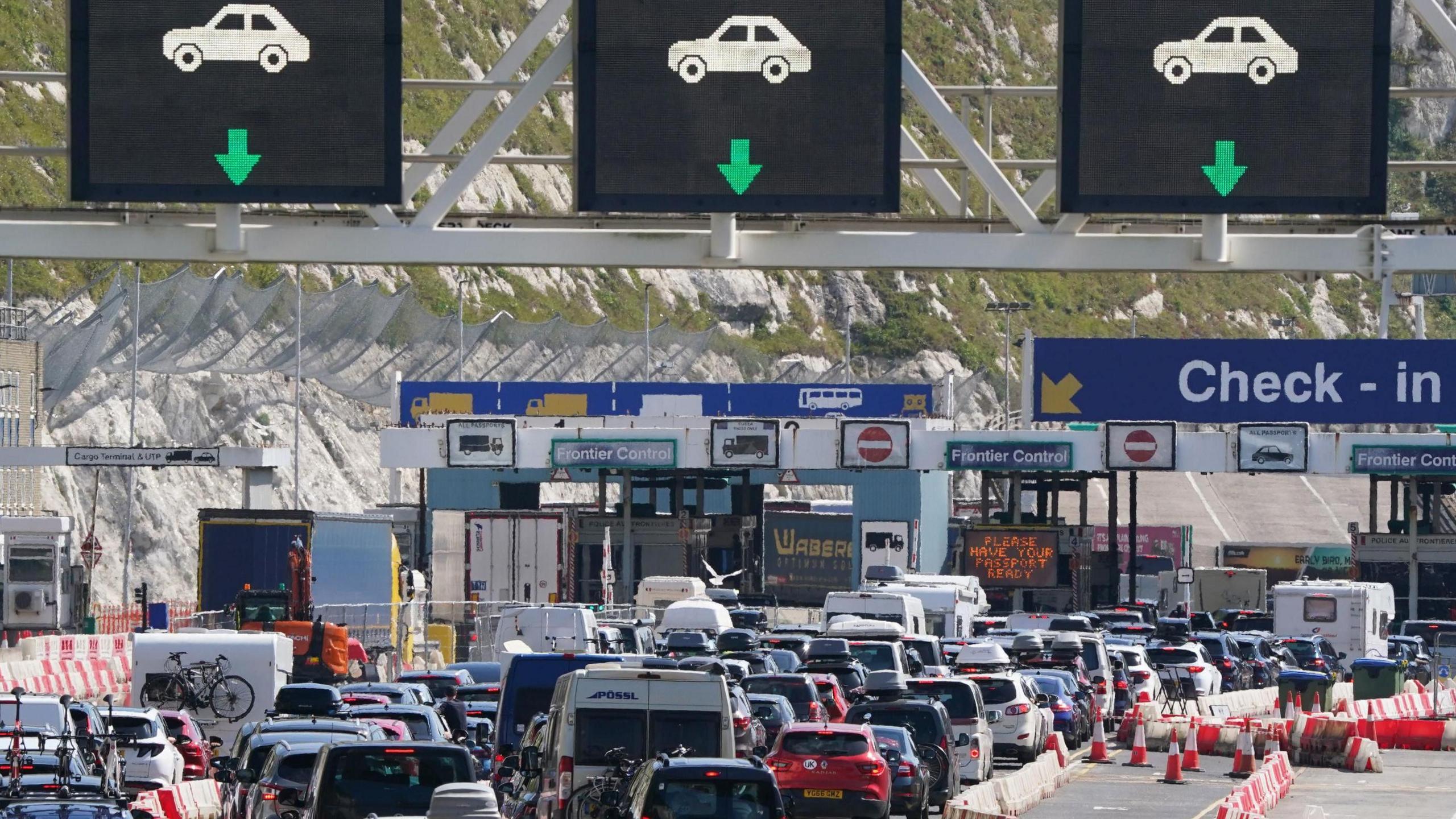Delay to EU's border checks draws mixed reaction
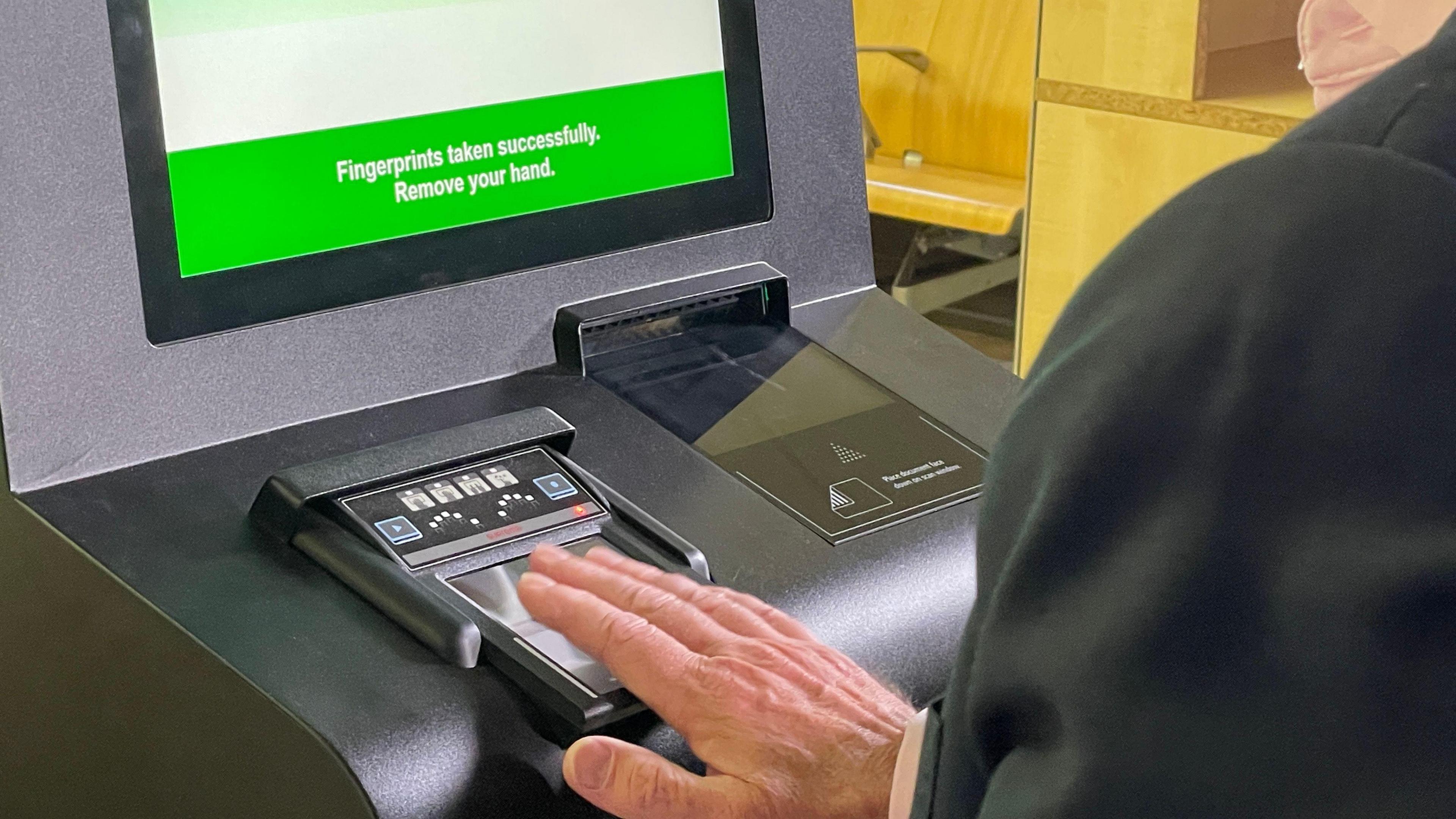
The new rules will see UK travellers fingerprinted on their way into the EU
- Published
Cross-Channel operators and council leaders have said they do not know how and when new border checks with Europe will come into effect.
The European Union has further delayed the introduction of the Entry-Exit System (EES), due on 10 November, because the technology is not yet ready.
The government said it is working with ports and carriers to make sure the correct technology is in place, while the European Commission said it will continue to provide support ahead of the roll-out.
Dover District Council leader Kevin Mills told a parliamentary hearing that the introduction of EES would have been "complete and utter carnage" and could have brought "gridlock on steroids" to the Kent town.
The issue was discussed on Tuesday by the Lords Justice and Home Affairs Committee.
Roger Gough, leader of Kent County Council, said the delay was an opportunity to address concerns about the scheme.
Eurotunnel said it was disappointed as it had spent £70m developing technology, building infrastructure, installing kiosks and recruiting staff.
The company said it would consider taking legal action against the EU to claw back some of its costs given the delay.
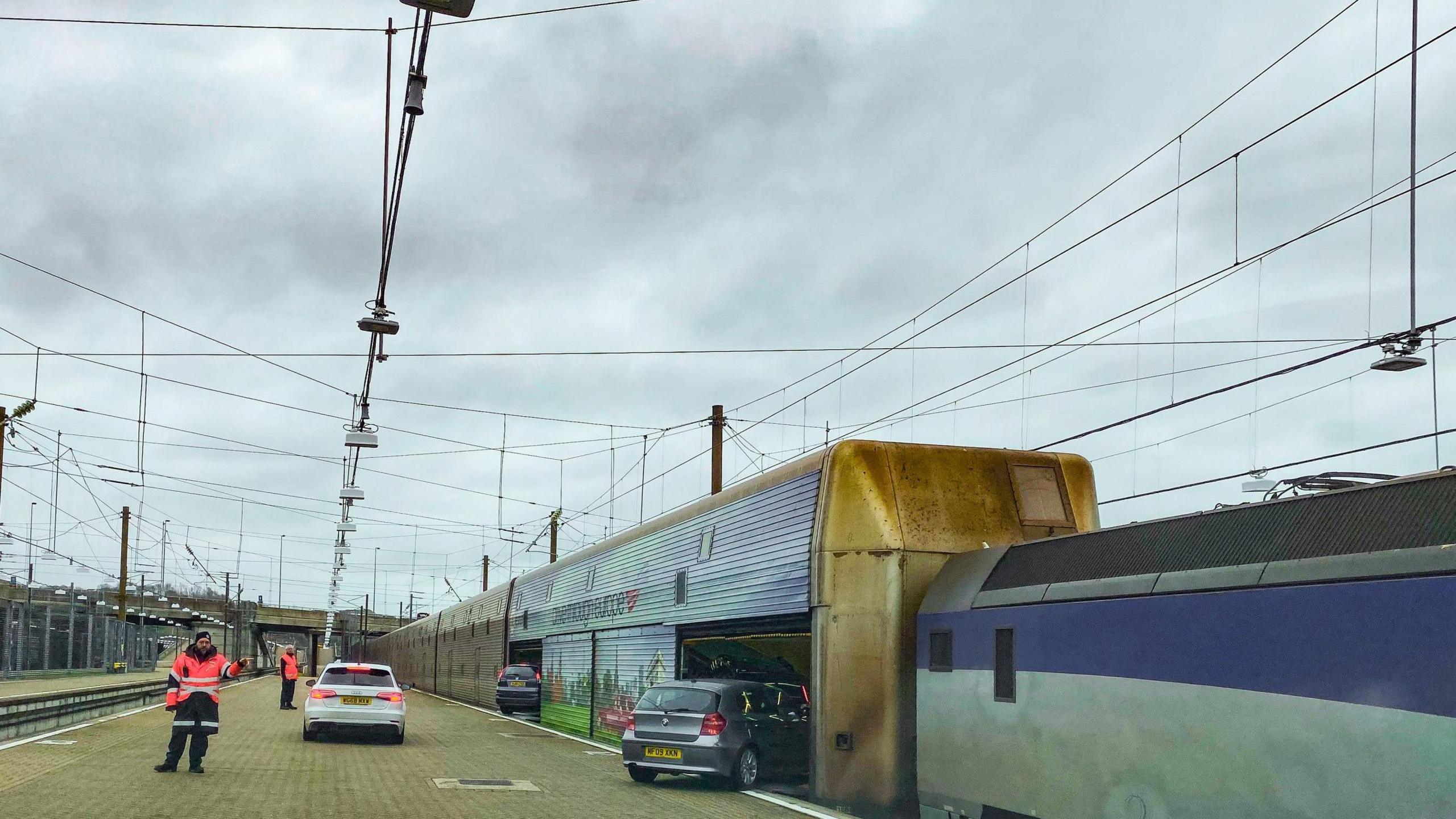
Eurotunnel is considering asking the EU to cover some of its costs for preparing for the new system
Once in force, the system will allow UK passengers to have their fingerprints taken and faces scanned in order to enter the bloc.
It has been pushed back yet again after Germany, France and the Netherlands said their systems were not ready.
Separately, sources have told the BBC that there has been no live testing of the EU’s software on the UK's border systems.
The delay is the latest in a long line of setbacks for the system, which was originally meant to be introduced in 2022.
The EES will apply to road borders, airports, ports, train stations - including Eurostar services - and at all other external EU borders.
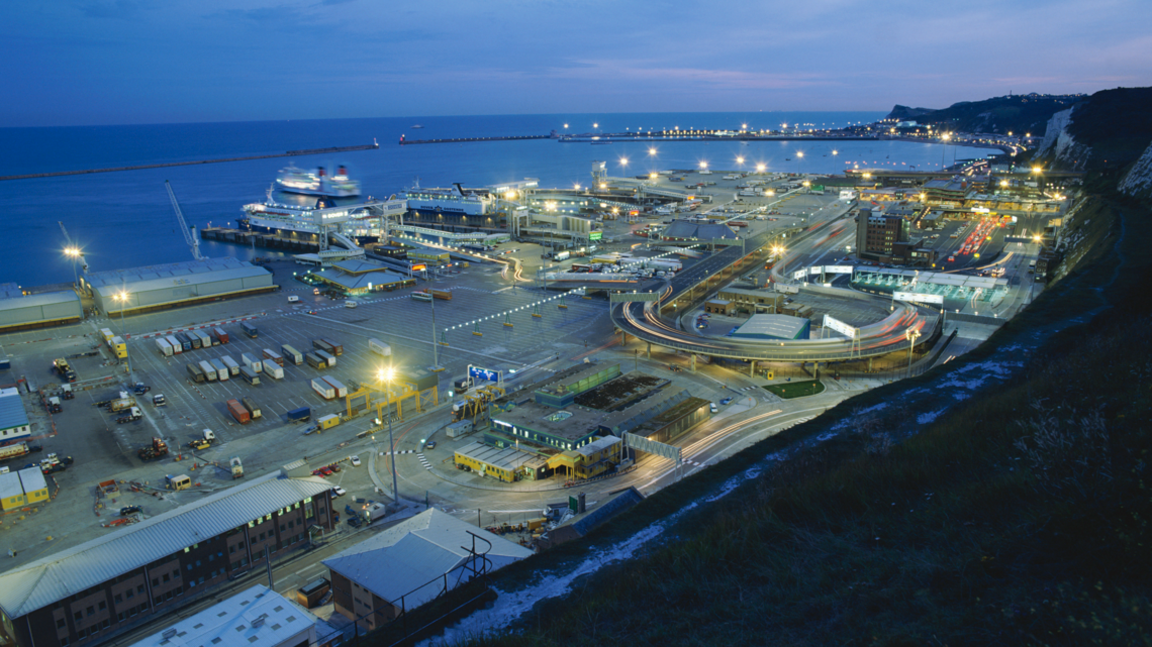
Local council leaders fear the new system will cause delays at the port of Dover
A government spokesperson said: “We are supporting ports and carriers to make sure they have the right technology and processes in place so EES registration can take place as smoothly as possible."
The government was also working with the European Commission, France and local authorities "to ensure we are prepared”, they added.
In August, the UK government announced £10.5m in funding for the port of Dover, Eurotunnel at Folkestone and Eurostar at London St Pancras to help reduce queues for travellers.
A European Commission spokesman said: "The commission will continue to provide full support, to ensure the roll-out of the system as soon as possible."
Follow BBC Kent on Facebook, external, on X, external, and on Instagram, external. Send your story ideas to southeasttoday@bbc.co.uk, external or WhatsApp us on 08081 002250.
- Published2 October 2024
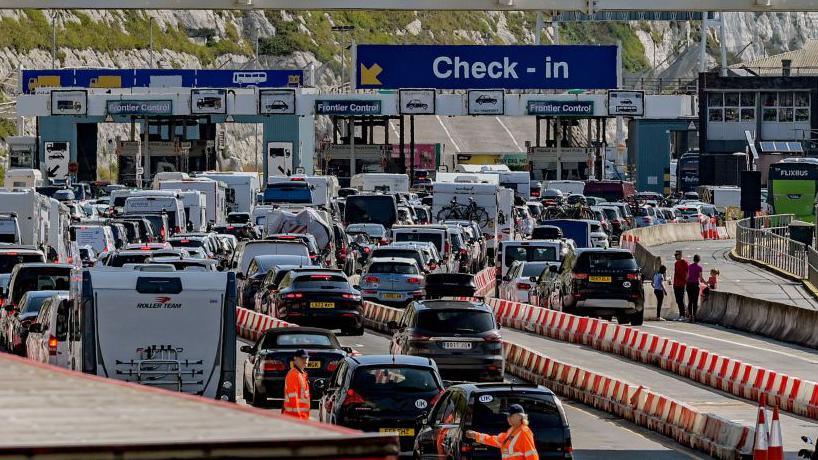
- Published29 July 2024
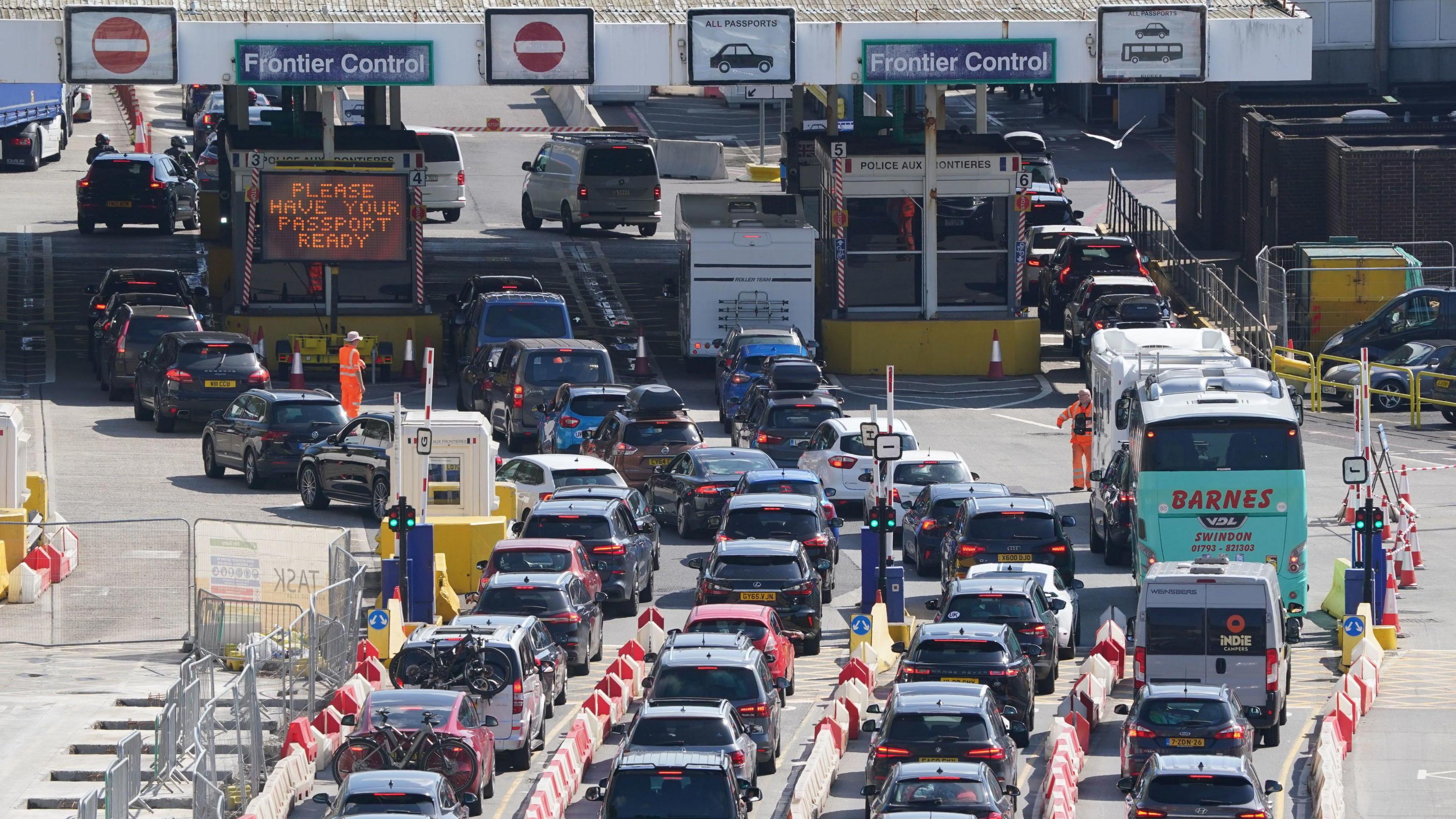
- Published25 July 2024
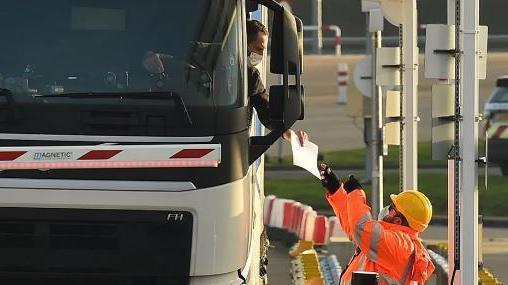
- Published12 July 2024
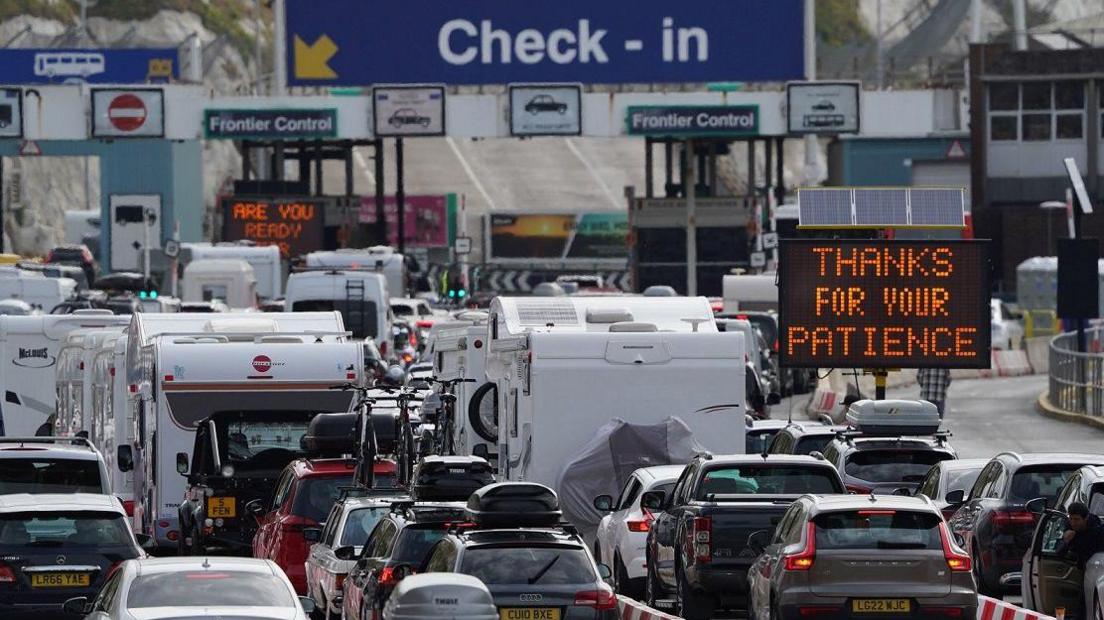
- Published4 June 2024
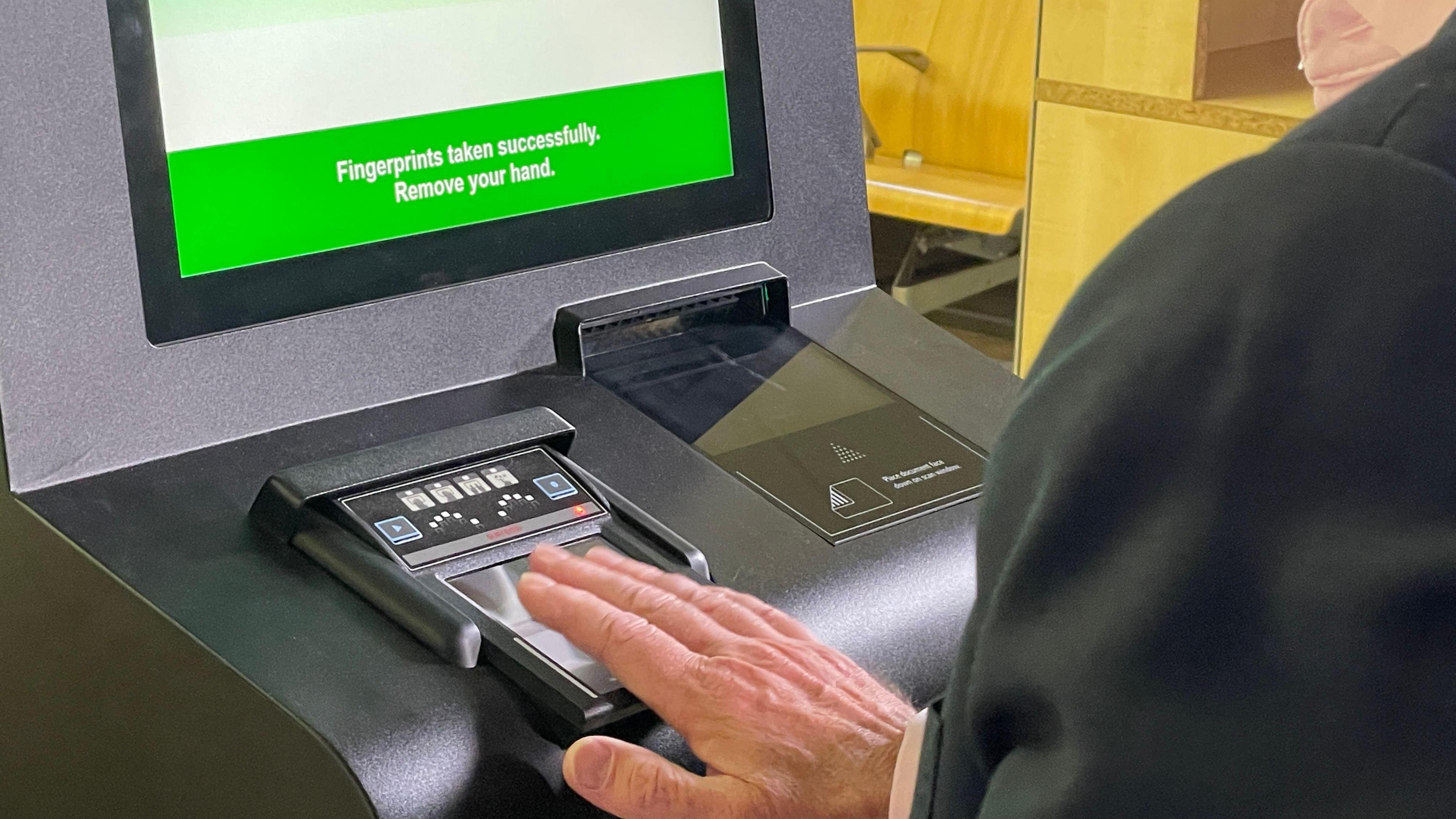
- Published27 August 2024
